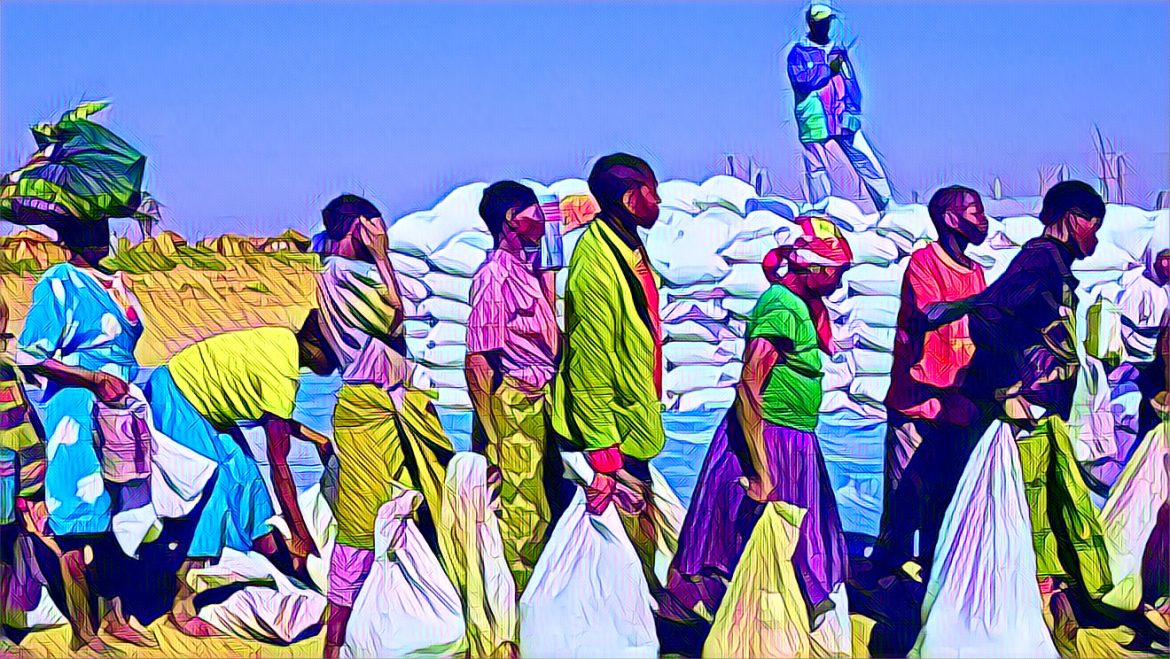In Zimbabwe, the distribution of food aid, crucial in the wake of an El Niño-induced drought, has become mired in politics, with evidence suggesting a systematic denial of aid to opposition supporters. The Zimbabwe Peace Project (ZPP), a key human rights watchdog, has documented cases where aid distribution was heavily influenced by political affiliations, particularly disadvantaging members of the opposition Citizens’ Coalition for Change (CCC).
Systematic Denial and Partisanship
ZPP’s latest human rights violations update has highlighted a troubling trend in rural areas, where Zanu PF officials and activists overseeing food aid programs are reportedly favoring party loyalists over others. In the Chiwundura constituency of Gweru district, Midlands province, disparities were stark. Despite a quota meant to provide food aid for 30 beneficiaries in each of Wards 13, 14, and 15, only 13 beneficiaries from Wards 13 and 14 received their rations, while all in Ward 15 did. The shortfall, affecting 47 individuals, was attributed to the recipients’ political affiliations. Zanu PF Councillor Moyoza, overseeing the distribution, was noted for saying that members of opposition parties must “repent and join the ruling party” to receive food aid.
In Chimanimani West, further discrimination was reported. Headman David Mudyanga was recorded advising opposition CCC supporters not to attend government aid distribution events, falsely citing food shortages. This deliberate misinformation restricts access to essential resources during a critical time of need.
Violations of Constitutional Rights
The actions documented by the ZPP point to a broader issue of rights violations, notably the right to sufficient food as enshrined in Section 77 of the Zimbabwe Constitution. The politicization of food aid not only undermines the fairness dictated by the law but also exacerbates the already dire humanitarian situation caused by severe drought conditions. Victims, already vulnerable, find themselves doubly disadvantaged due to their political beliefs.
The deprivation in food distribution has sparked significant outcry, both locally and internationally. It highlights the pressing need for transparency and impartiality in aid distribution practices. While the government, through figures like Deputy Minister of Agriculture and Zanu PF legislator Vangelis Haritatos, denies any partisan bias in food distribution, statements from ground-level operatives and documented instances speak otherwise. Haritatos’s blanket denial, encapsulated in his statement that “if there is hunger, there is hunger,” starkly contrasts with on-ground realities where food security is seemingly contingent on political allegiance.
International Concerns and Local Responses
These discriminatory practices have not only led to increased local suffering but have also raised concerns on the international stage about Zimbabwe’s adherence to basic human rights standards. With nearly 600 million people globally suffering annually from foodborne diseases, the situation in Zimbabwe reflects a microcosm of a larger global challenge—ensuring that humanitarian aid reaches those in need without bias or condition.
The ongoing situation calls for a concerted effort from both Zimbabwean authorities and international bodies to ensure that food aid is administered fairly and equitably. Advocacy by organizations like ZPP is crucial in bringing these issues to light and pressing for the necessary changes to ensure that aid distribution is free from political influence and truly serves the needs of all Zimbabweans.
Source: New Zimbabwe


